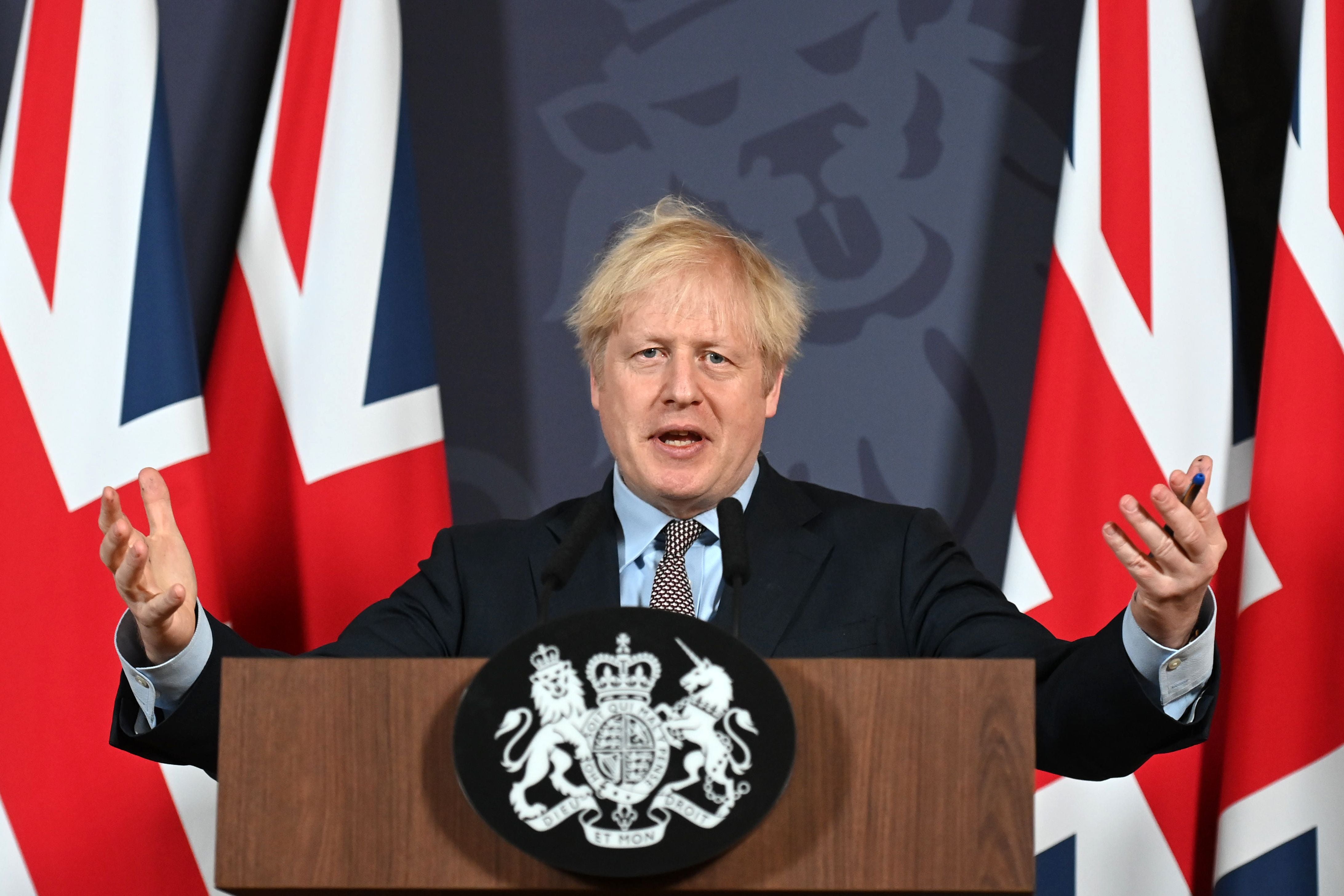The problems in Northern Ireland are not caused by ‘teething troubles’ but Brexit – proof Boris Johnson cannot have his cake and eat it
The prime minister’s choices led to the trade border in the Irish Sea about which he is still in denial, writes Andrew Grice


Likening the UK-EU relationship since 1 January to “turbulence” during an aircraft take-off, Michael Gove pointed out that what came next was cruising altitude and “seatbelts off”. On the post-Brexit journey, he told a Lords committee, “we’re not at the gin and tonic and peanuts stage yet but I’m confident we will be”.
Yet there are fears in London and Brussels that the Cabinet Office minister might merely end up with peanuts when the EU responds to his demand for changes to the Northern Ireland protocol to ease the disruption to goods coming from Great Britain, which is causing shortages in the country’s shops.
After three and a half hours of talks on Thursday night, Gove and Maros Sefcovic, the European Commission vice president, pledged to “spare no effort” to prevent a crisis in Northern Ireland. The mood music was warmer than in their frosty exchange of letters beforehand. They have a better relationship than the Brexit negotiators David Frost and Michel Barnier enjoyed. Yet there is no disguising that the UK and EU are poles apart on the sensitive Northern Ireland issue.
Whitehall insiders admit Gove is aiming high by demanding that grace periods allowing goods to move from Great Britain without checks should last for almost two years. The commission handed the UK a gold-plated opportunity by foolishly invoking Article 16 to suspend part of the protocol to prevent vaccines moving from Ireland to Northern Ireland.
Although the move was hastily withdrawn, the UK is in no mood to forget, as this strengthens its hand in the protocol talks. It’s a sharp contrast to the EU continuing trade negotiations last year when the UK broke international law by overriding parts of the protocol; the UK did not back down until Gove and Sefcovic reached an agreement in December on how it should operate. The EU argues that the UK has not implemented key elements of that agreement. “It is overplaying its hand,” one official told me.
Brussels might offer some limited extensions to the grace periods lasting months and simplify rules on taking pets from Great Britain to Northern Ireland; the EU has been over-zealous in interpreting some rules. But the fundamental cause of the problems in the province is not “teething troubles” but Brexit – specifically, the hard version in which Boris Johnson prioritised “sovereignty” over EU market access. It’s the final proof that Johnson couldn’t have his cake and eat it after all.
His choices led to the trade border in the Irish Sea about which he is still in denial. He hailed the withdrawal agreement as “a great new deal” after making a breakthrough in one-to-one talks with his Irish counterpart Leo Varadkar in 2019. Some UK officials are convinced Johnson didn’t understand the protocol’s detail. He told Northern Ireland businesses to put any customs declaration forms “in the bin”, saying: “Northern Ireland and the rest of GB are part of the UK customs territory and there can be no checks between goods operating in one customs territory.”
Although Johnson allies insist his promise of “unfettered access” related to the movement of goods from Northern Ireland to Great Britain, that is understandably not how they were read in the province.
His predecessor Theresa May, who (wrongly) said no British PM could agree to a border in the Irish Sea, needed the Democratic Unionist Party’s Commons votes but Johnson’s focus in 2019 was to “get Brexit done” and win an election. The DUP believes he sold it down the river by cutting Northern Ireland off from the rest of the UK. Although he no longer needed the DUP after his election triumph, he does now if the fragile peace in Northern Ireland is to be maintained.
The Brexit-supporting DUP faces a threat from the hardline Traditional Unionist Voice party, which could supplant it in the way the DUP eclipsed David Trimble’s Ulster Unionists. So the DUP is calling for the protocol to be scrapped, a demand backed by some Tory Brexiteers. The issue will likely dominate next year’s elections to the Northern Ireland assembly, which will decide whether to keep the protocol in 2024.
Johnson has raised DUP hopes by promising, if necessary, to invoke Article 16 to suspend parts of the protocol. The commission’s disastrous misstep would provide some cover but such a move would provoke a deep crisis. The protocol is the only show in town for preventing a hard border on the island of Ireland.
A permanent war with the EU might be a tempting prospect for Johnson; he could play to his base in the red wall and put Keir Starmer under pressure on an issue Labour wants to go away. But this course would be pointless and self-defeating. Johnson needs to make the protocol and wider UK-EU relationship work rather than re-fight old battles and pander to Tory Eurosceptics and the DUP.
It is in his own interests to make his version of Brexit work as well as possible, rather than constantly advertise its flaws.





Join our commenting forum
Join thought-provoking conversations, follow other Independent readers and see their replies
Comments